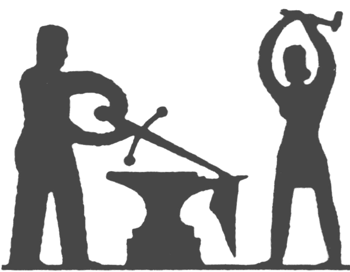I think the evidence has shown that you are being asked to sit in judgement over seven people who are clearly caught between a rock and a hard place. The rock is our faith in Jesus Christ, His command to love our enemies and to lay down our own lives rather than take the life of another. The hard place is Kings Bay Naval Submarine Base, where, as we have come to understand, the government is hiding the most poisonous and murderous weapons ever known to human civilization, and requiring us to live under their protection. In other words, in light of our faith, we are being forced to live a lie.
I think the evidence has shown that we were motivated, not by malice, but by a sincere belief that those weapons are blasphemous, idolatrous and mortally sinful. As such, we felt compelled to unmask them, to take our names off them, and to remove them from our lives.
The evidence has further shown that we brought with us an indictment, which it is our legal right as U.S. citizens to do, an indictment charging the government with criminal behavior. That indictment has been ignored, both by the government and by this court. Instead, we’ve been charged with multiple crimes, charged to a degree that can only be described as “over the top”. But make no mistake: the indictment we brought to Kings Bay is evidence. It need not be ignored by you.
In fact, when you go into that jury room in a few minutes, if you truly commit yourselves to practicing real discernment- which, of course, is your duty as jurors- I think what you’ve heard and seen during the past few days might lead you to an uncomfortable conclusion. You might conclude that the reason we stand accused under the law today is because the government has willfully, and even criminally, placed nuclear weapons beyond the reach of the law.
Despite our clear and honest testimony, the government has tried hard to portray us as people who don’t respect the law. They even went so far as to use the ridiculous analogy of running red lights. [Note: In cross examination, the government had tried to advance the notion that, by our logic, obedience to traffic laws should be optional.] You should remember that interaction yesterday, and consider it. In fact, maybe that analogy is a perfect illustration of the point we’ve been trying to make: when the law is obeyed without conscience; when the law is applied without common sense; when the law is administered without respect for human life- that is when the law itself becomes an idol. That is when the law becomes something that we are enslaved to, rather than the instrument of freedom and liberation it is meant to be. And I think the evidence has shown that this is the unfortunate place we have arrived at when it comes to nuclear weapons and the law.
But the beautiful and hopeful thing about our legal system is that it gives you, a jury, as representatives of the human community- which does not consent to the existence of nuclear weapons- the power to change that. And so, when you go into that deliberation room and take up the evidence that you’ve been presented, maybe you should think about what was considered legal and illegal in this country fifty years ago. Maybe you should think about what was not even allowed to be questioned in a courtroom one hundred years ago. Maybe you should think about what was legal, in this very state of Georgia, a hundred and fifty years ago. And then, maybe you should consider what your decision here today might look like fifty years from now- if, in fact, we have that much time left. Thank you.
—
